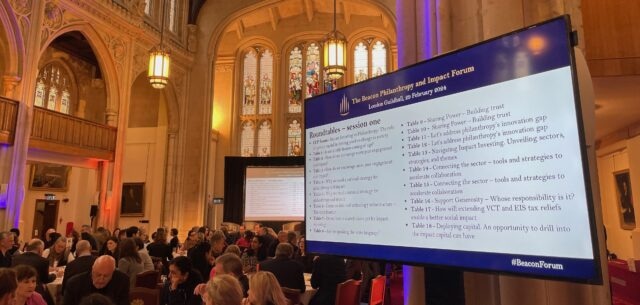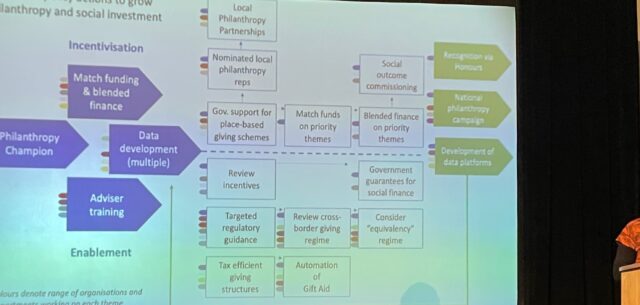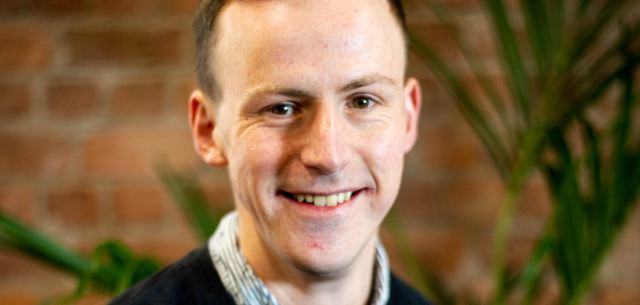Difficult decisions
Laura Montgomery serves as the Grants Coordinator and Correspondent for The Ellis Campbell Foundation, her family’s foundation based in Hampshire, which was established in 1990 by Laura’s father, Michael Campbell. Michael remains the Chairman.
Laura believes passionately that philanthropists and foundations have a duty to ensure they are doing philanthropy well, having learnt over the years that giving money away is easy but measuring impact is extremely difficult. Hence, before the COVID crisis struck, the family foundation had embarked on a strategic review.
With no full-time staff, Laura had met with a number of organisations who could help the foundation improve its impact. The trustees appointed Ten Years’ Time to help them take the deep dive they wanted.
In January, the trustees began an intensive seven-month programme that would focus on youth power and leadership. They held meetings with over 70 experts including researchers, activists, policymakers and those working in the fields of education, youth services, housing, the care system, mental health and crucially from so many individuals with lived experience.
Then the pandemic struck. The trustees faced the difficult decision whether to put the strategic review to one side and direct all their grant funding into causes supporting the COVID relief efforts. This decision was further complicated by the fact that the foundation’s investments are in commercial property.
As a fifth generation family member, Laura is also managing director of the family’s property investment office, The Ellis Campbell Group. The investment office gives a grant to the foundation annually.
Laura had planned to grow the endowment to equate to 5% of the investments of the group and hoped to make a significant grant of £2 million to the foundation in 2020. However, in the run up to 2020, property market performance had been down, so the profits were not available to make the in-specie transaction as planned. The pandemic knocked the business even further.
Yet, the trustees felt the exceptional circumstances meant the foundation had to act. They sold property and put £100,000 toward COVID support, even though market conditions will likely continue to affect their long term plans to reach the endowment target.
This amount was split across a number of organisations, including the Hampshire and Isle of White Community Foundation, National Emergencies Trust, Trussell Trust and the Hampshire Medical Fund.
The foundation will also press ahead with its plan to concentrate efforts on Youth Power and Leadership with a commitment of £200,000.
The review that led to this focused plan had encouraged the whole family to get involved in the strategy, including the upcoming sixth generation. Laura did not want to lose that level of engagement – or let down family members and the experts who had committed a great deal to the process.
“It has been such a rewarding process of engaging with the individuals we want to support, and we have been in a unique position to be in full listening mode and to be open to them and their inputs.”
Previously, the family foundation had a broader portfolio across Youth, Education and Heritage in Hampshire, Perthshire and London. Since 1990, the family had committed £3.1 million in grants to these causes. An additional £35,000 has been reserved in case it is needed in emergency funding for causes they already support.
In itself, the decision to fund both COVID and current commitments was not difficult. However, it was difficult to determine how best to do this at time when the foundation was facing capital constraints and uncertainty about future funding flows.
In a normal year, the foundations grants equate to 6% of the net asset value of its endowment. This year, its payout ratio could increase to as much as 12% of net asset value.
“As a small Foundation, there is simply less room for manoeuvre right now. As much as we would like, we cannot throw caution to the wind and double the size of grant-making.
This process has really challenged us to think about how we as philanthropists should be looking at the big picture and questioning what we should be doing in this moment, given all the global struggles and our commitments.
I am pleased with our decisions, but there were many competing demands and financial challenges facing our foundation.”
Laura extends her gratitude to the Association of Charitable Foundations, The Indigo Trust and The Beacon Collaborative for their role informing their COVID giving strategy.





